A car can make a bit of jerking when come to a stop due to poor driving skills or loose components which isn’t concerning. But, if your car jerking when stopped even after applying the brake properly, this can be the result of a more serious problem.
It can happen due to a faulty transmission system, damaged brake system, bad throttle body, or transmission control solenoid. To fix the problem, inspect the car with a mechanic to avoid jerking or jolting the car when stopped, idling, accelerating, or driving.
Article Summary
Why is My Car Jerking When Stopped?
Brake and transmission problems are the two most common reasons that can cause your vehicle to jolt or jerk when stopped. Dirty fuel injectors can also make stopping the car less smooth. Below are brief discussions:
1. Faulty Transmission System
Vehicle shift gears when you slow to a stop. While changing between gears, a bad transmission can make the gear shifting unsmooth and cause bumps and jolts during slowing down to the park. A clogged transmission filter can let the contaminant’s fluid enter into the transmission pump and cause low fluid pressure in the system.
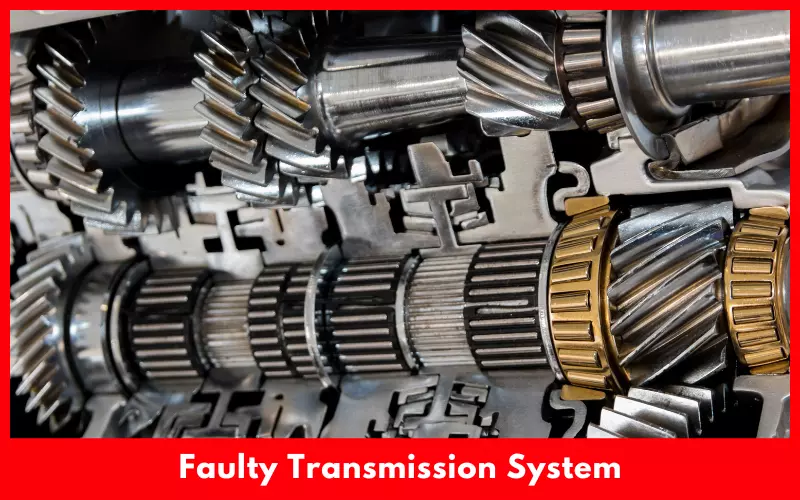
So you can feel slips and jerks during shifting gears to stop the car. Another thing to check is the level of the transmission fluid. If it’s low, the transmission can slip and cause the vehicle to jerk when you try to stop the car. Polluted transmission fluid can also cause reduced hydraulic power and slippage.
2. Damaged Brake System
A worn-out brake system can make the braking feel less smooth. Damaged brake lines or bad rotors can also make the car jerk when stopped.
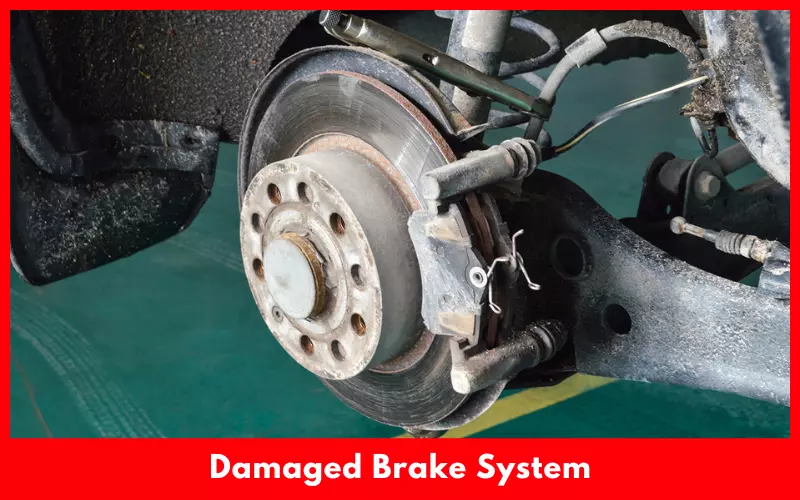
The brake disc or rotor helps decelerate the car with the aid of brake torque. The brake disc can wear down unevenly due to using the brakes more often and can cause pulsing or shuddering when braking.
So, it needs to replace the discs periodically to retain the brake system’s functionality. Another brake part to check is the brake calipers that press the brake pads against the rotors to run the wheel brakes. But a worn, rusty, or damaged brake caliper can cause the brake to drag and feel like jerking.
3. Coil Pack or Throttle Body
If your car jerks when stopped at a red light, it can be the the result of a faulty coil pack or throttle body. The throttle sensor body controls the airflow to the engine. If it gets damaged or becomes dirty, you can feel erratic jerks during changing gears to stop the car.
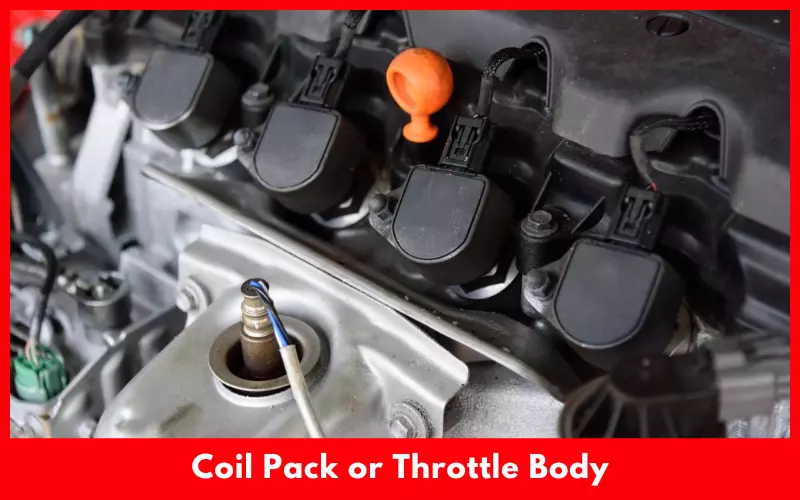
The coil pack on the other hand helps keep cylinders cool. But it can cause fire due to overheating and cause jerking.
4. Faulty Transmission Control Solenoid
If your vehicle jumps or jerks forward when coming to a stop, check the transmission control solenoid. The transmission solenoids are made of spring-loaded plungers that are wrapped with wire. When the wire’s coil gets an electrical charge from ECU or TCM, it opens the plungers so the transmission fluid flow into the valve body and pressurizes the bands and clutches.
Hence, the transmission changes the gears so you can drive efficiently. But if the transmission control solenoid malfunction, it can cause delay shifting, hesitation in shifting gears, and a jerking reaction. To fix this problem, you’ll have to diagnose and inspect the transmission by a professional mechanic.
5. Bad Torque Converter
If your car jerks and the check engine light comes on, you can blame the failing torque converter. The torque converter clutch and torque converter perform the same task as automatic transmission as the clutch of a manual transmission.
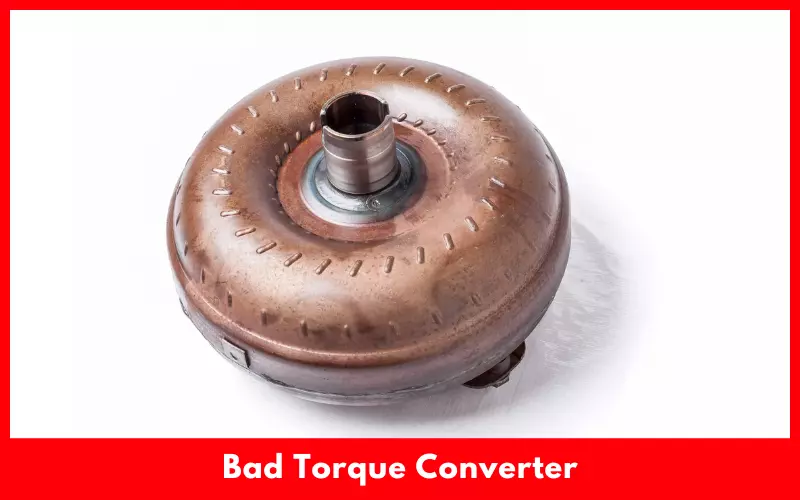
These components protect the engine from stalling during the stop of the vehicle and boost the engine’s pulling power. But if the torque converter gets damaged, it can trigger a check engine light and store trouble code while causing jerks when stopped.
6. Bad Anti-Lock Brakes
The anti-lock braking system or ABS depends on the car’s computer and controls the brake fluid pressure to avoid the locks. But if the ABS malfunctions, the brakes can start acting strangely and cause jolting or jerking of the car when stopped.
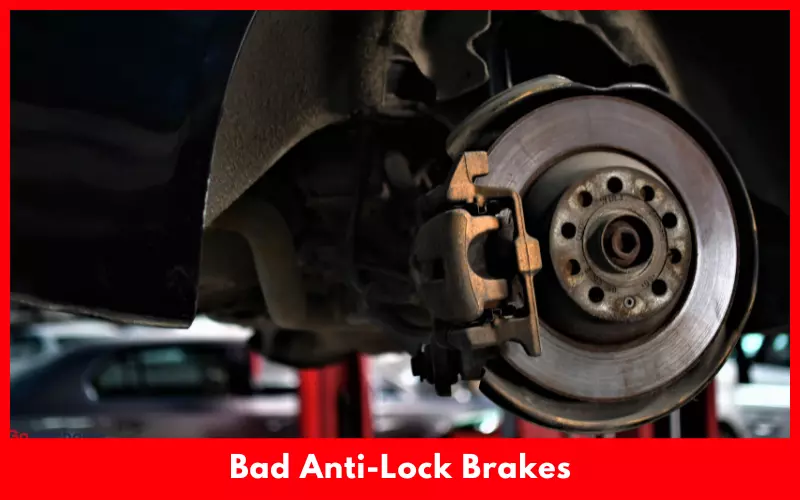
7. Clogged Air Filter
The engine’s incoming load is determined by the air control valve, air filter, and the engine’s vacuum. The air filter can get clogged due to dirt. It can cause air volume and power production and end up causing car jerks when stopped at red light or idling.
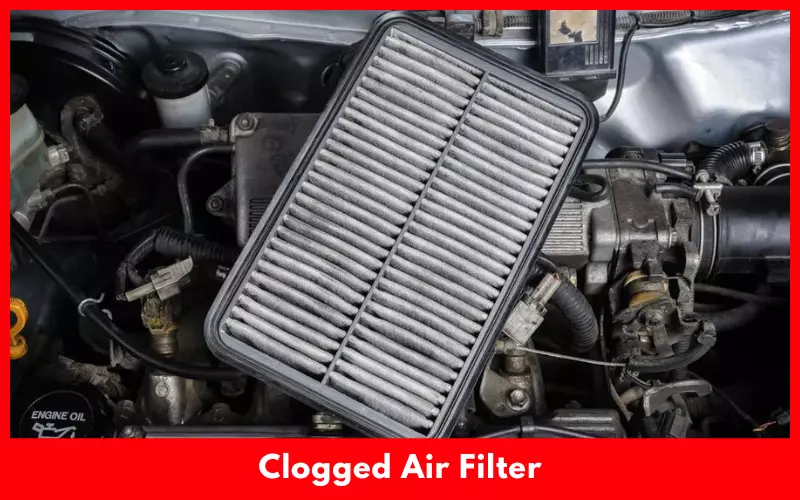
8. Dirty Fuel Injectors
Fuel injectors can get dirty due to consistent engine misfires and cause jerks and cars to lose power. In this case, you should hear the engine stuttering noise. To avoid this issue, you have to clean the fuel injector frequently. You can use a fuel injector cleaner to make the procedure simpler as it can clean even heavily carbonized injectors.
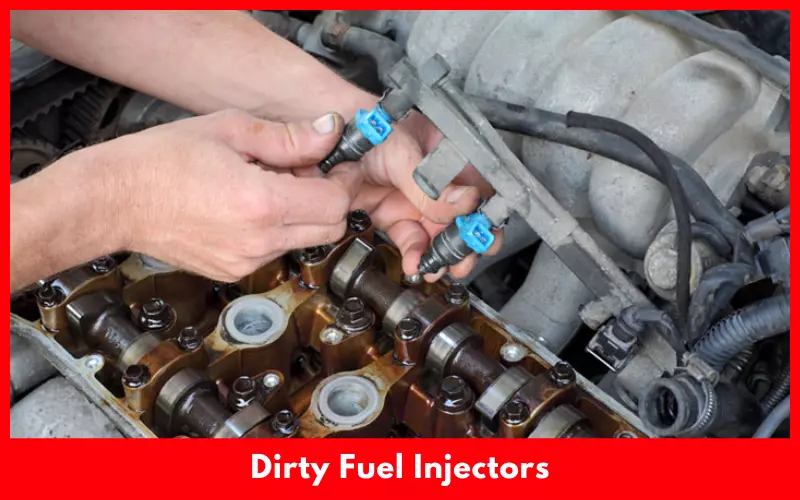
How do you stop a Car without Jerking?
You can apply some effective tricks to stop your car without feeling jerking. Practice gradually letting off the brake pedal as the vehicle slows down to ensure consistent force of braking. If you focus on the jump or jerk only at the end, it’ll be difficult to feel and maintain the right timing. So, try to feel it all the time you are braking so you can lift the foot naturally and get closer to stopping.
So, when your vehicle gets close to stop, pull back the brake pedal a little bit and press it again gently. Instead of backing off all the way, pull enough to keep the car slowing down. Slowly stop the car. Don’t stop the vehicle within 10 feet of your destination. The slower you’ll go, the later you’ll start pressing the brake pedal.
Drive the car at a reasonable speed and try to apply consistent brake pressure. The braking will slowly get more extreme and shoot up at the end.
When Car Jerking is Normal?
Theoretically, when the wheels almost stopped, the brake pad gripped harder suddenly and cause a bit of jerk. The little bounce at the end of a complete stop is also known as inertia. If your vehicle jerks when stopped only for this reason and there is no issue with the vehicle then its, normal. A driver can also eliminate this kind of a jerk if become careful while driving.
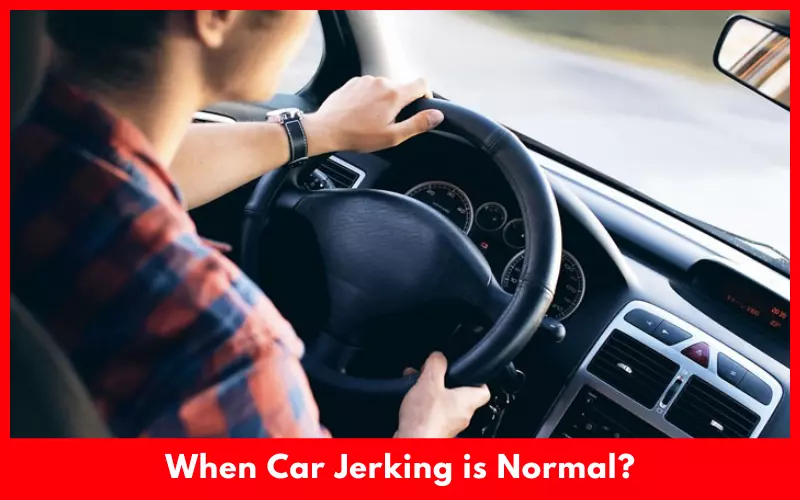
The front shocks and struts absorb most of the pressure to ensure a smooth stop. But if there is a loose nut between the brake pedal and steering wheel, it can jerk your vehicle when trying to stop. This kind of jerking is also normal or at least less dangerous. Lastly, a good driver eases off the brakes at the final moments of the stop to avoid this kind of jerk.
FAQs
Why car jerk when idle and accelerating?
Your car can jerks or judder when idle and accelerating due to plenty of reasons including dirty fuel injectors, clogged catalytic converter, or damaged fuel pump. Worn out spark plug can cause engine misfire which can result in jerking or shuttering while accelerating and driving. If so, you have to replace all spark plugs.
Why do my car jerk while driving at a constant speed?
Your car can jerk forward when driving at a constant speed due to a wide range of reasons. It can be due to the catalytic converter, gas lines, accelerator cable, or mass airflow sensor. So, your car requires deep diagnosis and inspection to solve such an issue.
Why my car jerk while slowing down?
If your vehicle jerks while slowing down or decelerating, it can be the result of a clogged fuel injector, leaking transmission, damaged MAF meter, or worn engine mounts. To fix the issue, you have to inspect the brake system, ABS or service the transmission.
Final Words
If your car jerking when stopped and there is no check engine light on the dashboard, improve your driving skill. Handle the brake pedal properly particularly when stopping the car and then look for loose components inside the car.
But if your vehicle activates CEL along with jerking when stopped, it can be a serious internal problem. So inspect the car by an expert mechanic to smoothly stop the car.
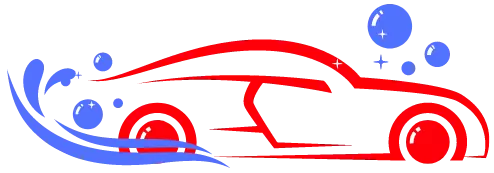

I thought my car is gone. But it was the brake system fault that was causing jerking. Solved it, and driving smoothly now.